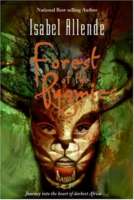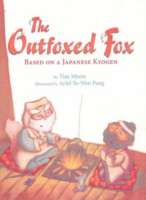
The First Tortilla is a moving, bilingual story of courage and discovery. A small Mexican village is near starvation. There is no rain, and the bean and squash plants are dying. Jade, a young village girl, is told by a blue hummingbird to take a gift to the Mountain Spirit. Then it will send the needed rain. Burning lava threatens her, but Jade reaches the top of the volcano. The Mountain Spirit is pleased. It allows the ants in a nearby cave to share their corn with Jade. The corn was sweet and delicious and Jade took some back to save the village. Jade grinds the dry corn, adds water, and makes dough. She pats the masa and places it on hot stones near the fire. She has made the first tortilla. Soon the making of corn tortillas spreads throughout Mexico and beyond.Reading level: grade 3 and up








